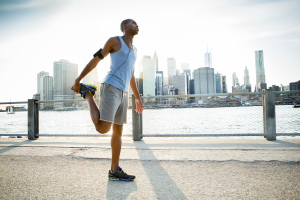 They Were Addicted to Opioids. Now They’re Running the New York Marathon.
They Were Addicted to Opioids. Now They’re Running the New York Marathon.
I first encountered a group of dedicated “recovery runners” in the early 70’s, when I was living and working in Marin County, CA. They started running when they were residents in a therapeutic community and continued after discharge. If I recall correctly, there were perhaps ten loyal members, none of whom had relapsed.
I pay attention to anecdotes about activities that seem to promote sustained recovery. Running is one of the more popular examples, but my guess is if someone did a survey, there would be a hundred that appear to have helped somebody somewhere stay clean and sober. A few that I’ve run across in my travels:
- Aerobics classes
- Cycling
- Modern dance classes
- Yoga class
- Hiking (group– can be somewhat risky alone, depending where you hike)
- Birdwatching expeditions
- Long walks exploring the city with a guide
- Sweat lodge
- Journaling circles
- Storytelling groups
- Genealogy research societies
- Doing other people’s taxes (I am not making that up)
Some characteristics that many share:
Prosocial— defined as done with the intention of helping others as well as oneself. That’s the group aspect: people getting together in an activity designed to benefit all.
Noncompetitive— runners and cyclists often compete in races, but for these folks, I saw that winning was never the real objective. Exceeding your previous best time or distance, that was a common target. And if another competitor fell or was incapacitated during a race, the recovery group immediately stopped to help.
Inner-focused— there was a meditative aspect to many of these activities. Certainly long-distance running is believed to have a calming effect, akin to meditation. Yoga, too. Journaling is certainly inner-directed.
Structured— these activities require that we take time out of the day to participate. You need to focus. It’s difficult to text with your homies or play Candy Crush while you’re struggling to assume a yoga position. I asked a dedicated mountain hiker what she thought about during her hikes. “Not falling,” came the answer. I suppose that clarity of purpose could be refreshing.
Activities such as these are time-consuming and require more effort than simply taking a pill. But then, so does real life.
Oh, about the people that did taxes: five trained preparers who got together on Saturday mornings at a senior center to help those who needed it (almost everybody, it turns out). Then went to a meeting for a dose of recovery. “Best part of the week,” one swore.









